
SADGA
TRIUMPHANT
spirit
The South African Disabled Golf Association (SADGA) is paving the way forward for golfers locally and internationally
BY CLINTON VAN DER BERG

In the world of golf, tales of triumph often revolve around skill, dedication and an unyielding passion for the game. Yet, some stories transcend the sport itself, illuminating resilience, community and the power of one person’s determination to make a difference.
This is one such story. It begins with David Watts, South Africa’s top disabled golfer. Watts, 27, is no ordinary athlete. Born with a lower limb disability that has required 19 operations, his journey to the top is breathtaking. Self-taught, he cannot use his lower body but has developed an extraordinary golf swing that defies conventional techniques.
Among only 10 golfers selected by the prestigious DP World to compete at the G4D Open in Singapore, Watts won the tournament in 2023, a crowning achievement for a player often competing in able-bodied amateur events.
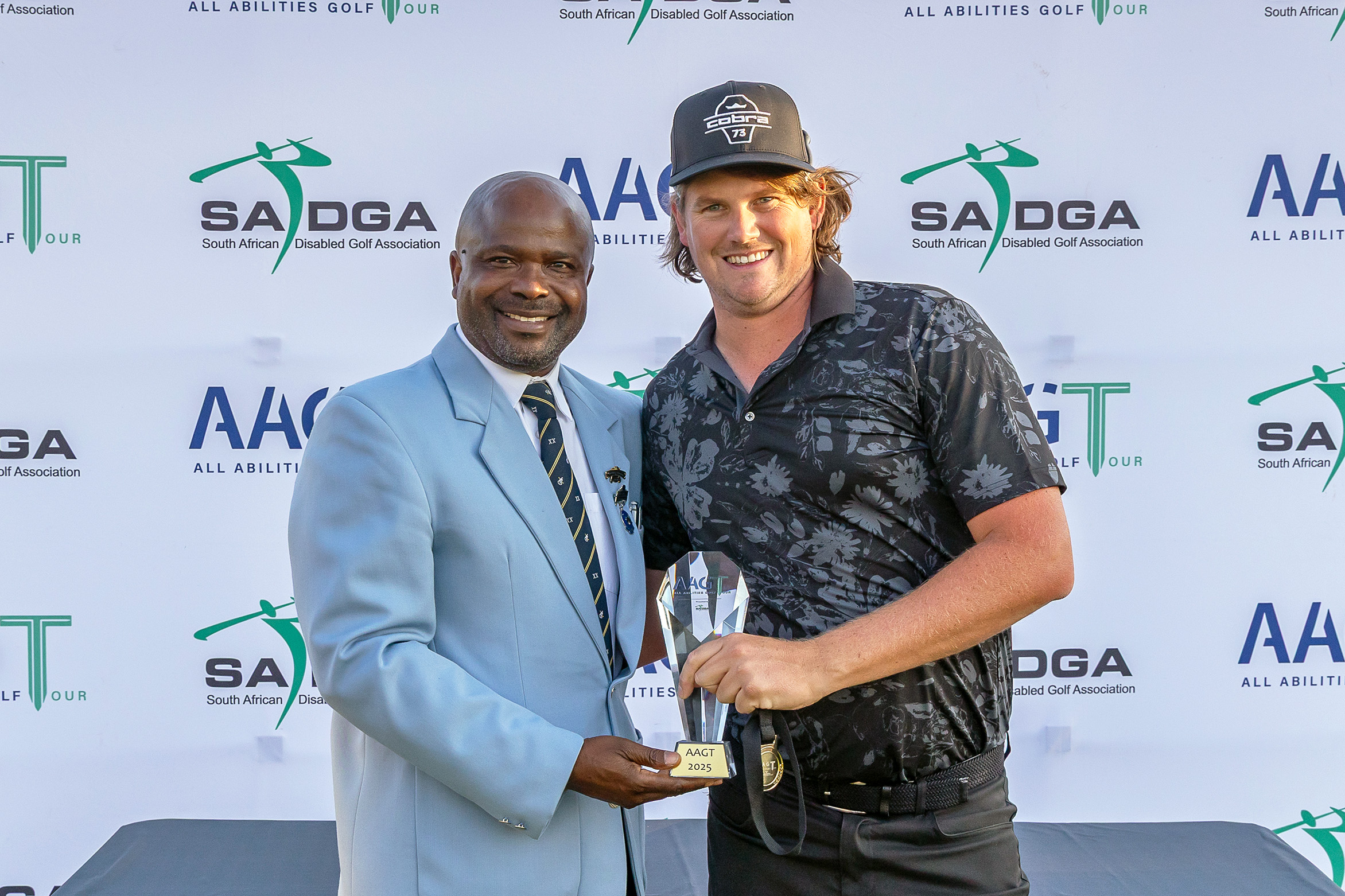
David Watts’ success symbolises not only personal perseverance but also the potential unlocked by inclusive, adaptive sport
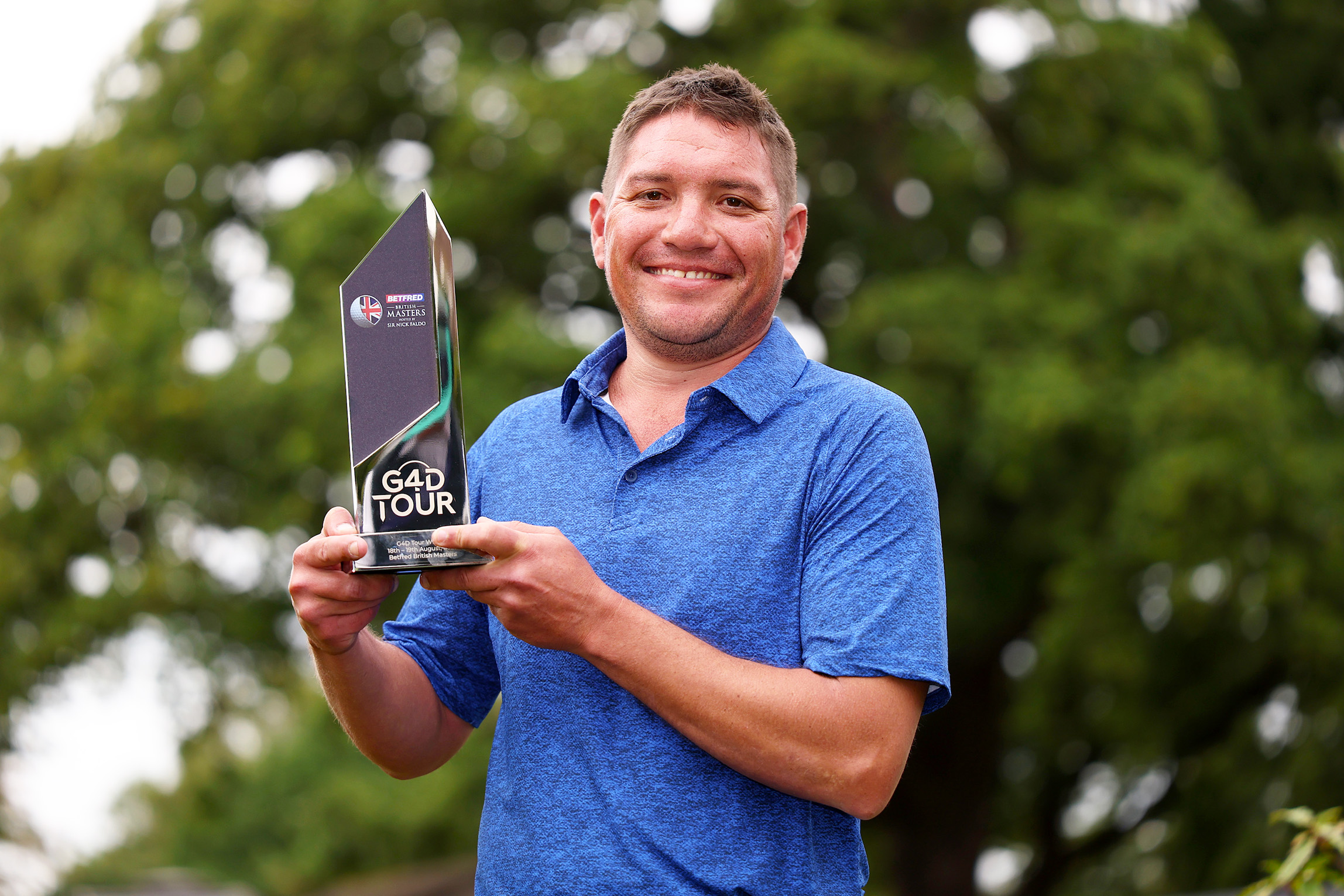
SUCCESS STORY
Daniël Slabbert won his first G4D Tour title on his debut as he beat Joshua Exequiel Riccardo in a playoff at the Betfred British Masters.
The South African, a left leg amputee, made a par at the second playoff hole to bring the season’s first Net-only event to a dramatic climax.
Trailing by two shots with two to play in regulation, Slabbert produced a birdie-birdie finish as overnight leader Exequiel Riccardo went birdie-bogey to force both players to play the 18th again at The Belfry Hotel & Resort.
‘I’m absolutely delighted,’ said Slabbert. ‘Especially with the playoff holes, I got a bit nervous out there. It's an absolutely amazing feeling to get it done.’
With his victory, Slabbert secures his spot at the 10-player G4D Tour Series Finale, which will be staged in conjunction with the Rolex Grand Final supported by The R&A.
‘It’s been great,’ he says of his experience as a member of the South African Disabled Golf Association (SADGA), ‘and it’s enabled me to play all over the world.’
He is fulsome in his praise of GolfRSA (thanks to their enduring support of SADGA) which has helped him become one of SA golf’s flag-bearers. His success symbolises not only personal perseverance but also the potential unlocked by inclusive, adaptive sport.
At the heart of this transformative movement is Lily Reich, the vibrant operations manager for SADGA. Based at the historic King David Mowbray Golf Club in Cape Town, Reich’s story is as inspiring as the athletes she supports. SADGA, founded in 2004, has blossomed into the fastest-growing disabled golf initiative in the world, and much of that success can be traced back to her indomitable spirit.
Reich is a firecracker; warm, articulate and imbued with passion. She’s driven by personal connection and a profound belief in the power of sport. Twenty-five years ago, her husband, a skilled two-handicap golfer, lost his leg in a harrowing motorboat accident.
Attending a golf event at Spier, Reich’s volunteering role morphed organically, growing alongside the association. Despite the challenges of raising twins, she took on the mantle of running SADGA, almost single-handedly steering the organisation through financial hardships and logistical obstacles.
Gallery below
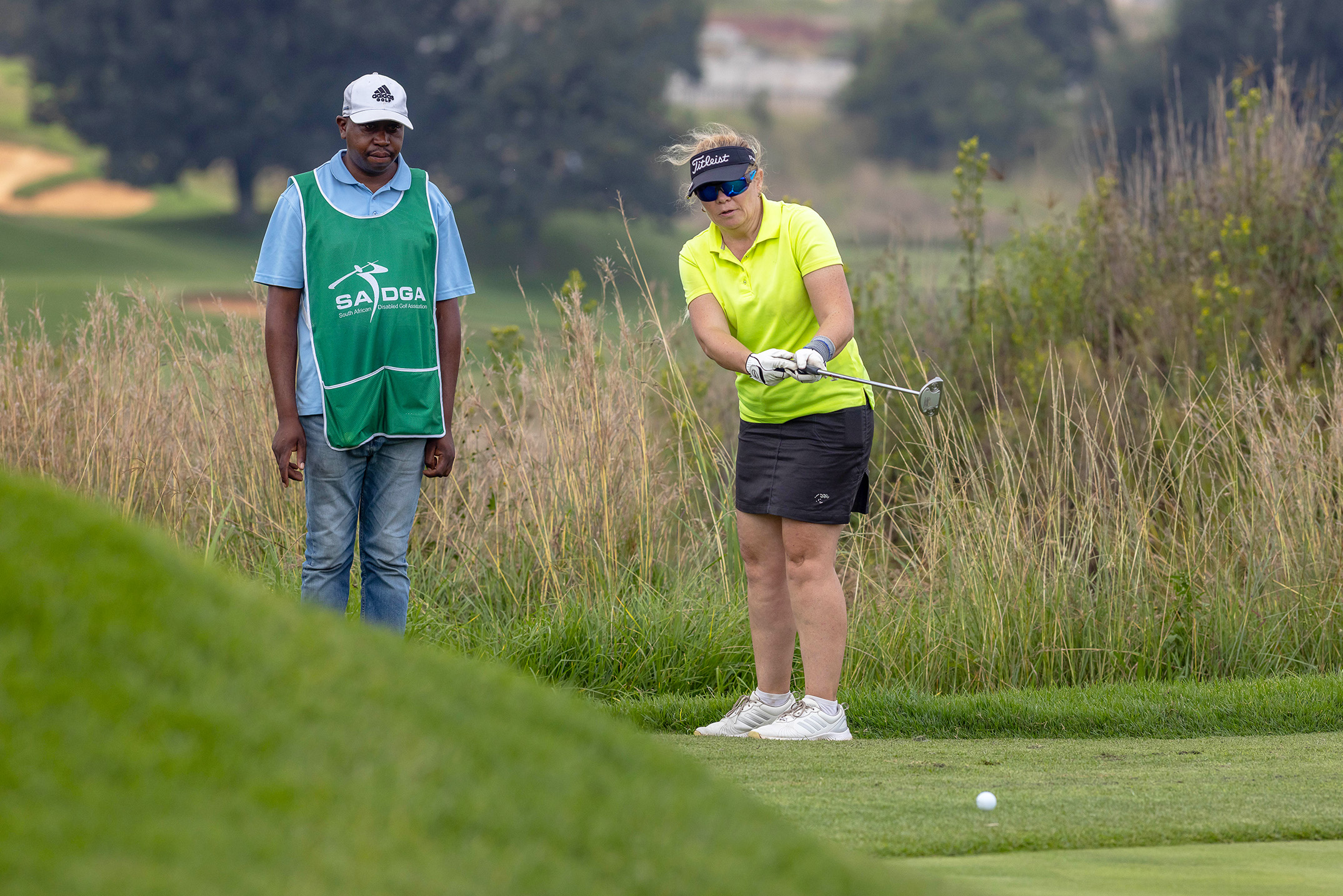
Charlene Pienaar
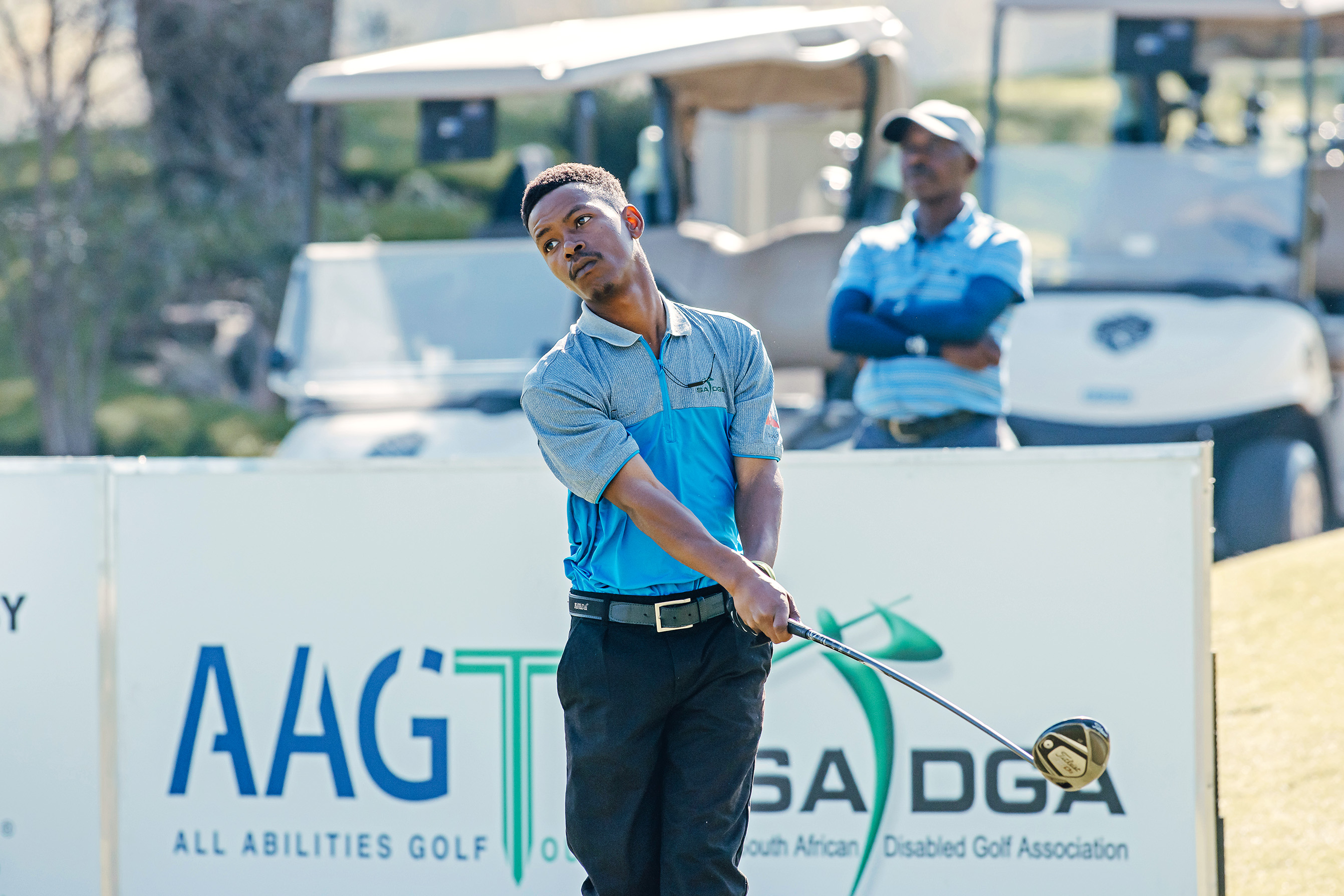
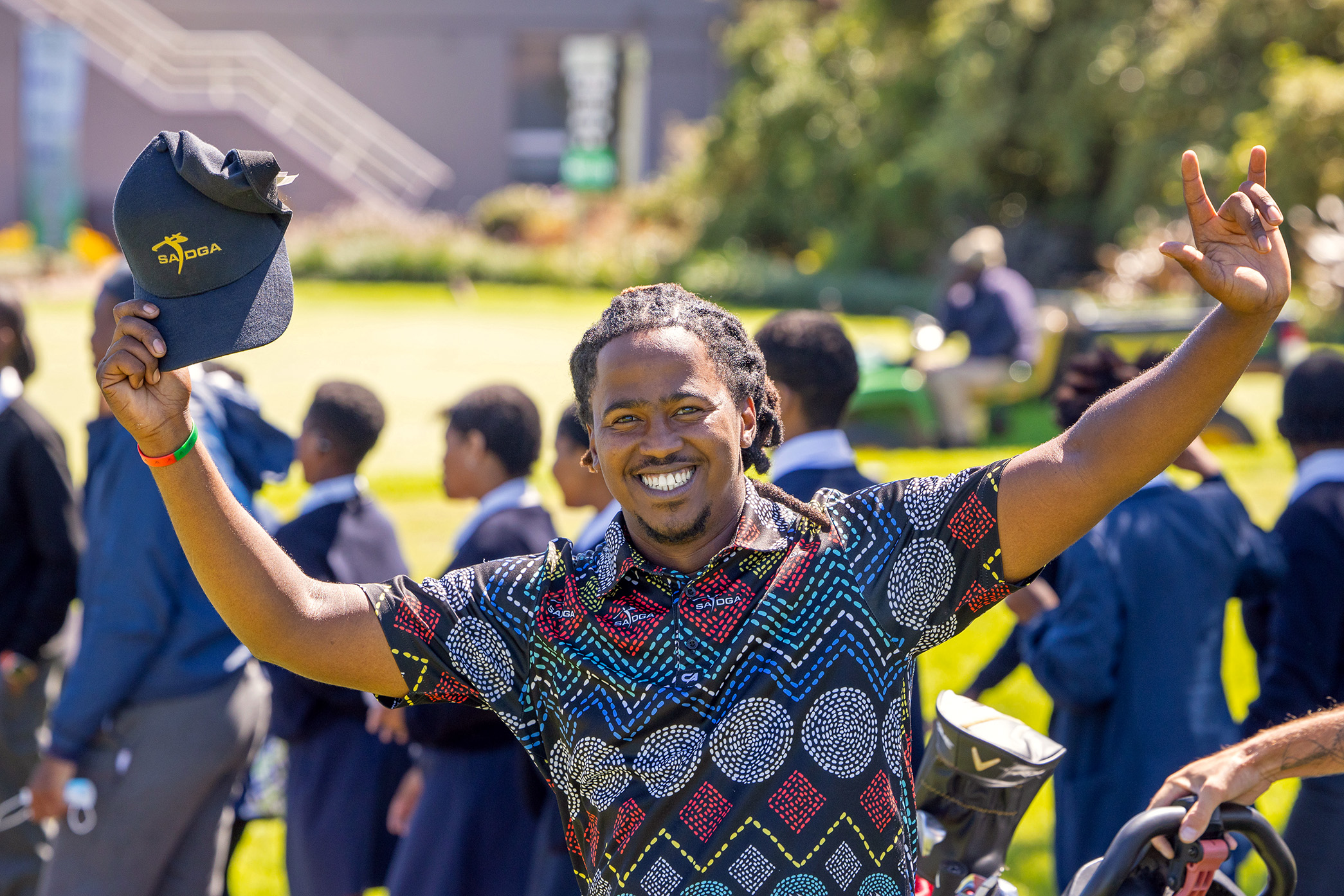
Charles Williams
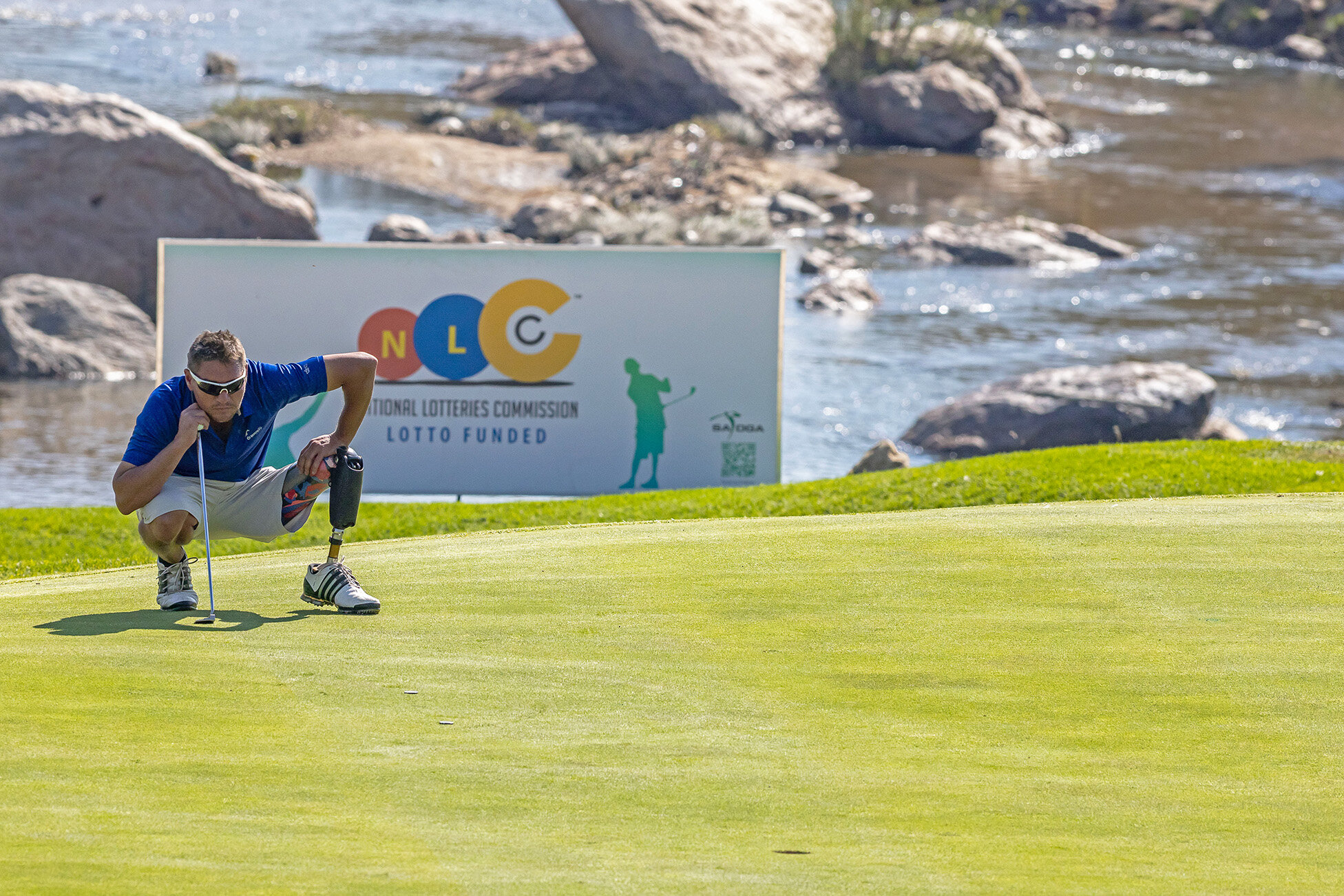
Daniël Slabbert
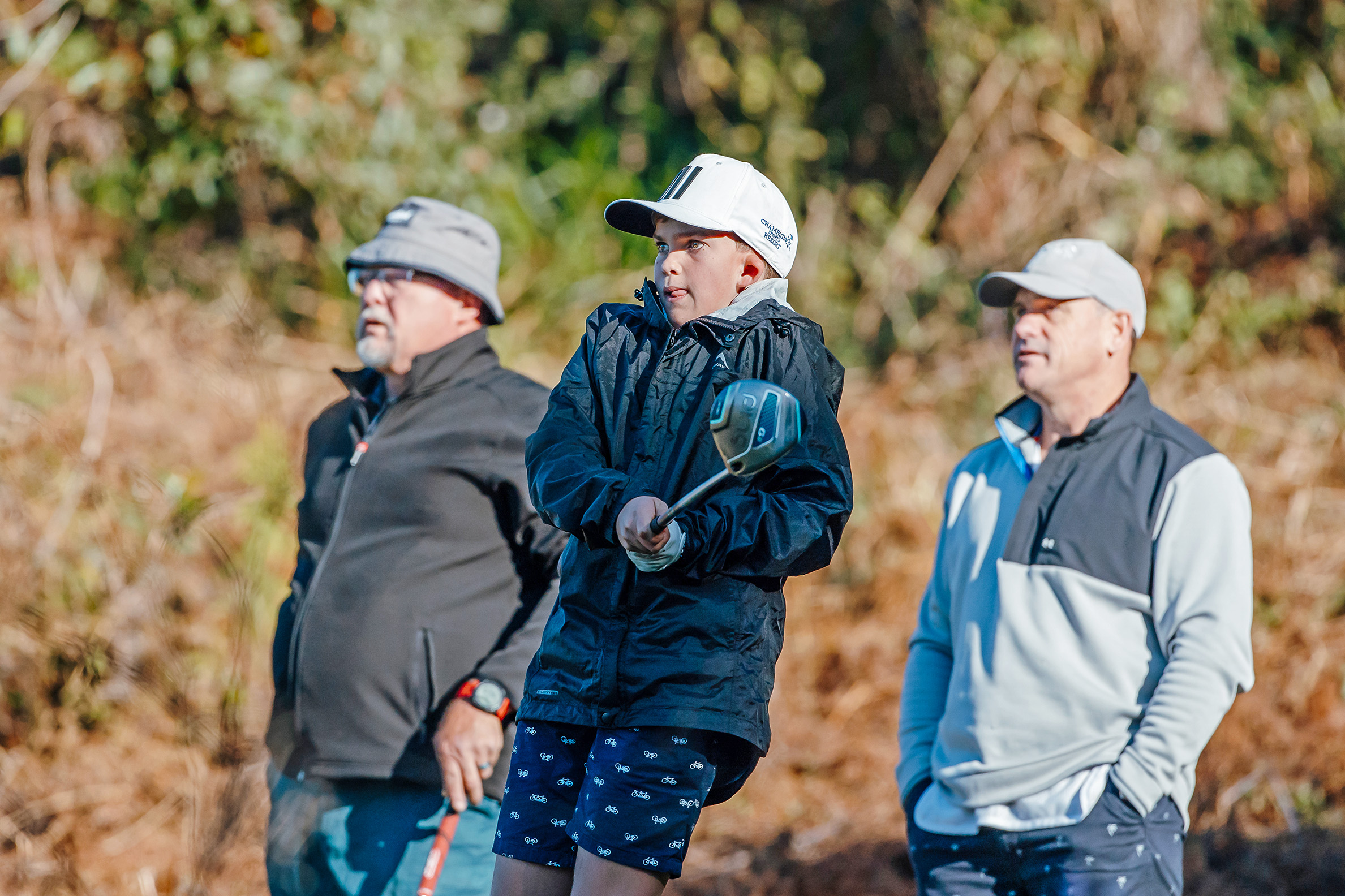
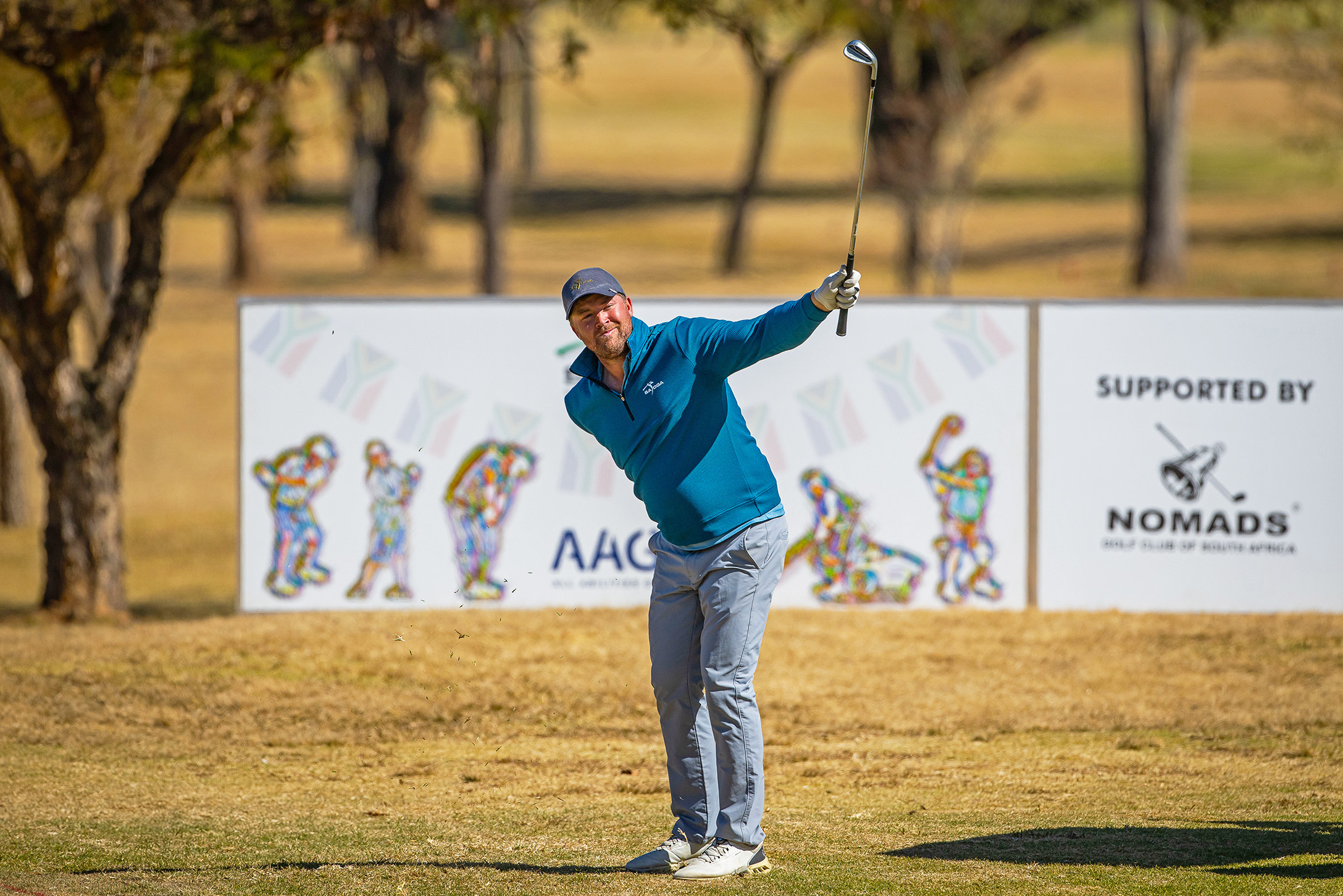
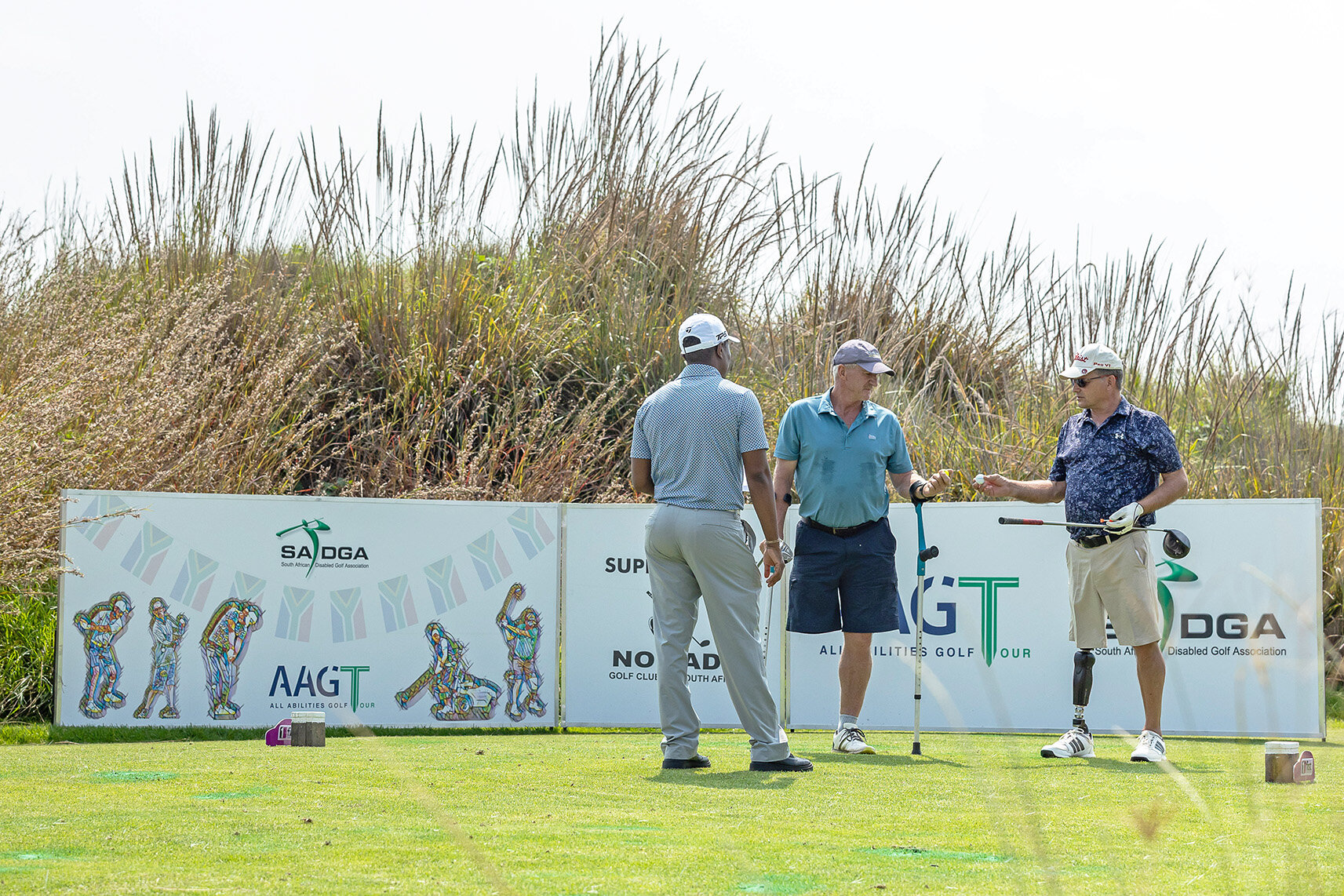
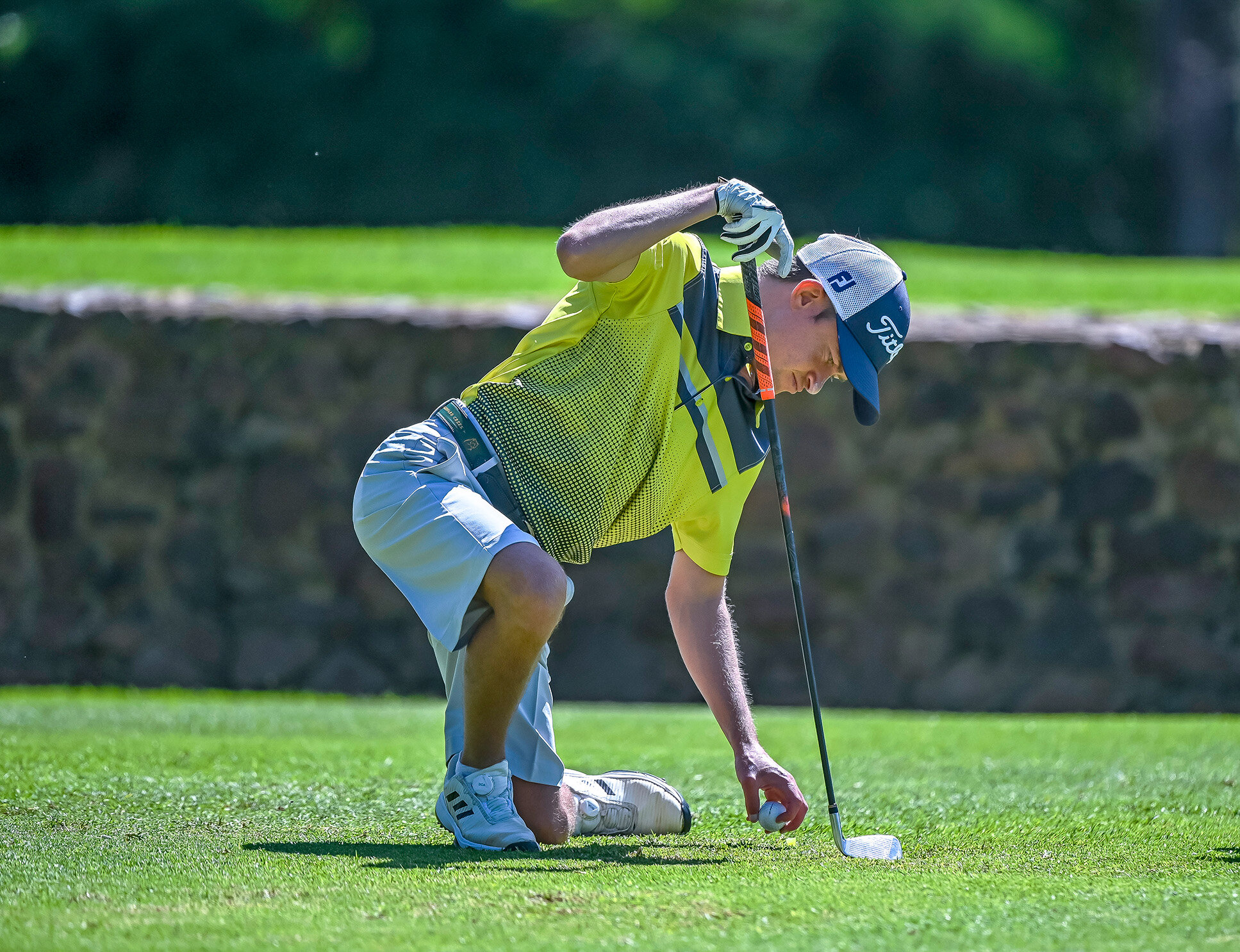
The mission is simple but profound: to provide golfing opportunities for any South African with a permanent disability. This expansive vision manifests through three core programmes that impact roughly 900 to 1 000 children annually across 36 schools for the disabled. These aren’t just golf lessons, they are life lessons, imparting critical values like honesty, integrity and resilience.
A unique aspect of SADGA’s approach is inclusivity within educational environments. They’ve established 17 golf environments inside schools, eliminating barriers by bringing the sport to the players instead of requiring travel to private clubs. For those with exceptional talent, pathways are available to train with elite golf professionals at top clubs, signalling a bridge from inclusion to excellence.
Running such an expansive and impactful organisation with limited funding is Reich’s greatest challenge. Though SADGA is governed by a board of directors, only she and her assistant receive any remuneration, and even then, some months bring no salary at all.
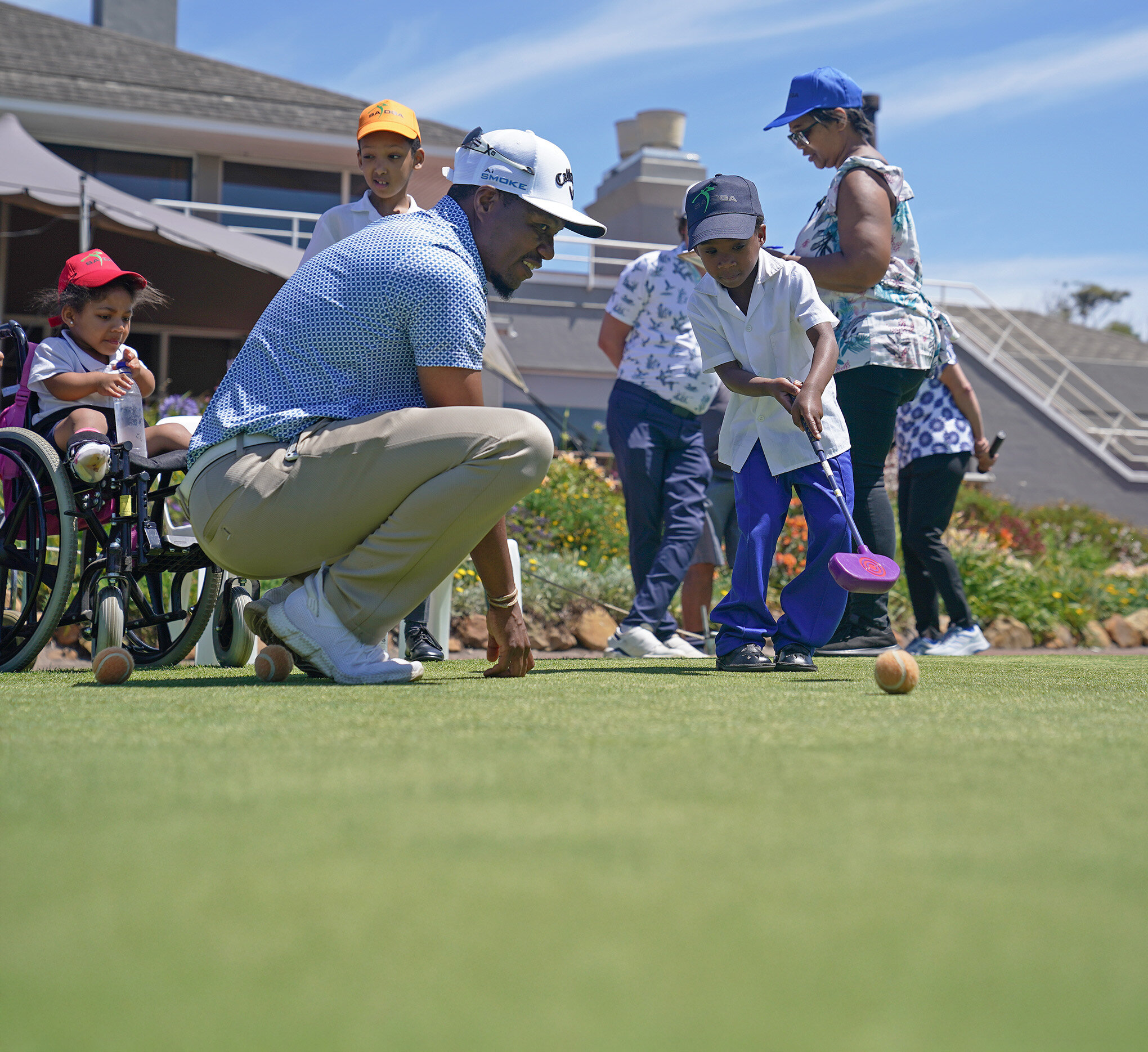
SADGA’s impact is broader than sport. It builds community, fosters empathy and nurtures a sense of belonging
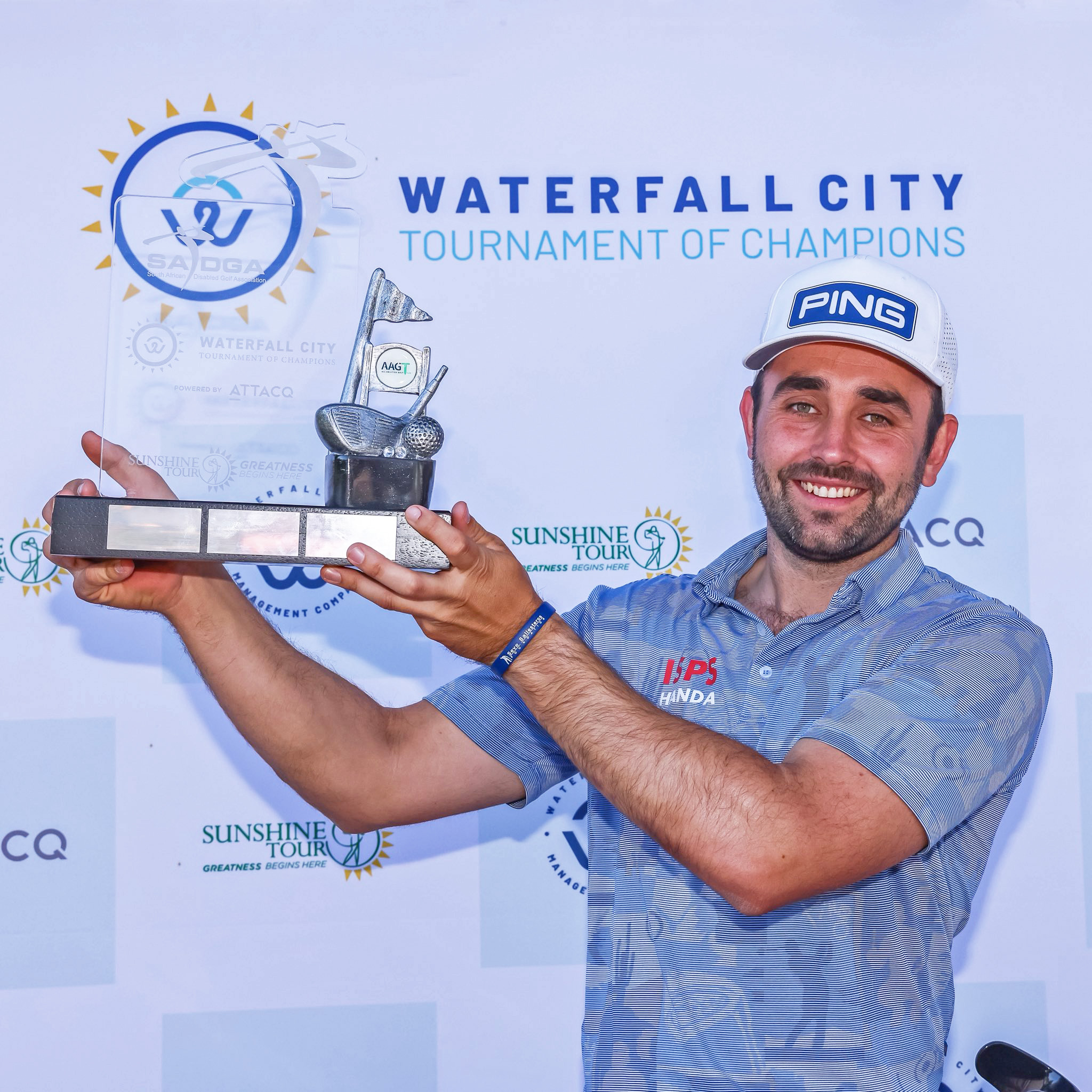
ALL-INCLUSIVE GOLF
SADGA returned to the Sunshine Tour’s Waterfall City Tournament of Champions, supported by Attacq and WCMC, at Royal Johannesburg’s East Course, in May.
The elite field featured South Africa’s David Watts, Daniël Slabbert, Kelvin van Baalen and Charles Williams, alongside international stars Issa Nlareb and Juan Postigo Arce, who finished in top spot. Once again, players with disabilities competed alongside Sunshine Tour professionals, playing the same course, same conditions, same pin positions and under the same live television broadcast coverage.
After a hugely successful debut in 2024, this unique integration gives SADGA’s players the opportunity to test themselves at the highest level – and brings much-needed attention to G4D – Golf for the Disabled.
Funding streams are varied and lean: a development fund from GolfRSA, support from Nomads who assist with greenfees and carts, contributions from the Department of Sport and Culture and the National Lotteries Commission, plus donations and fundraisers. Even the golf clubs are overwhelmingly supportive, offering discounted rates or free office space, as King David Mowbray does.
Thanks to these collective efforts, disabled golfers under SADGA’s wing also benefit from career guidance. Many face severe employment challenges, especially in Cape Town. SADGA addresses this by covering taxi fares, providing meals and training players as assistant coaches or equipping them with administrative and budgeting skills, preparing them for life beyond the fairways.
Talented golfers come from diverse backgrounds and disabilities, including the deaf, blind, wheelchair users, amputees, cerebral palsy and multiple sclerosis. Reich recalls one unforgettable success story: a deaf boy, Charles Williams, from a troubled neighbourhood in Cape Town who started golf at 12 and is now South Africa’s best deaf golfer, poised for the Deaflympics.
Gallery below
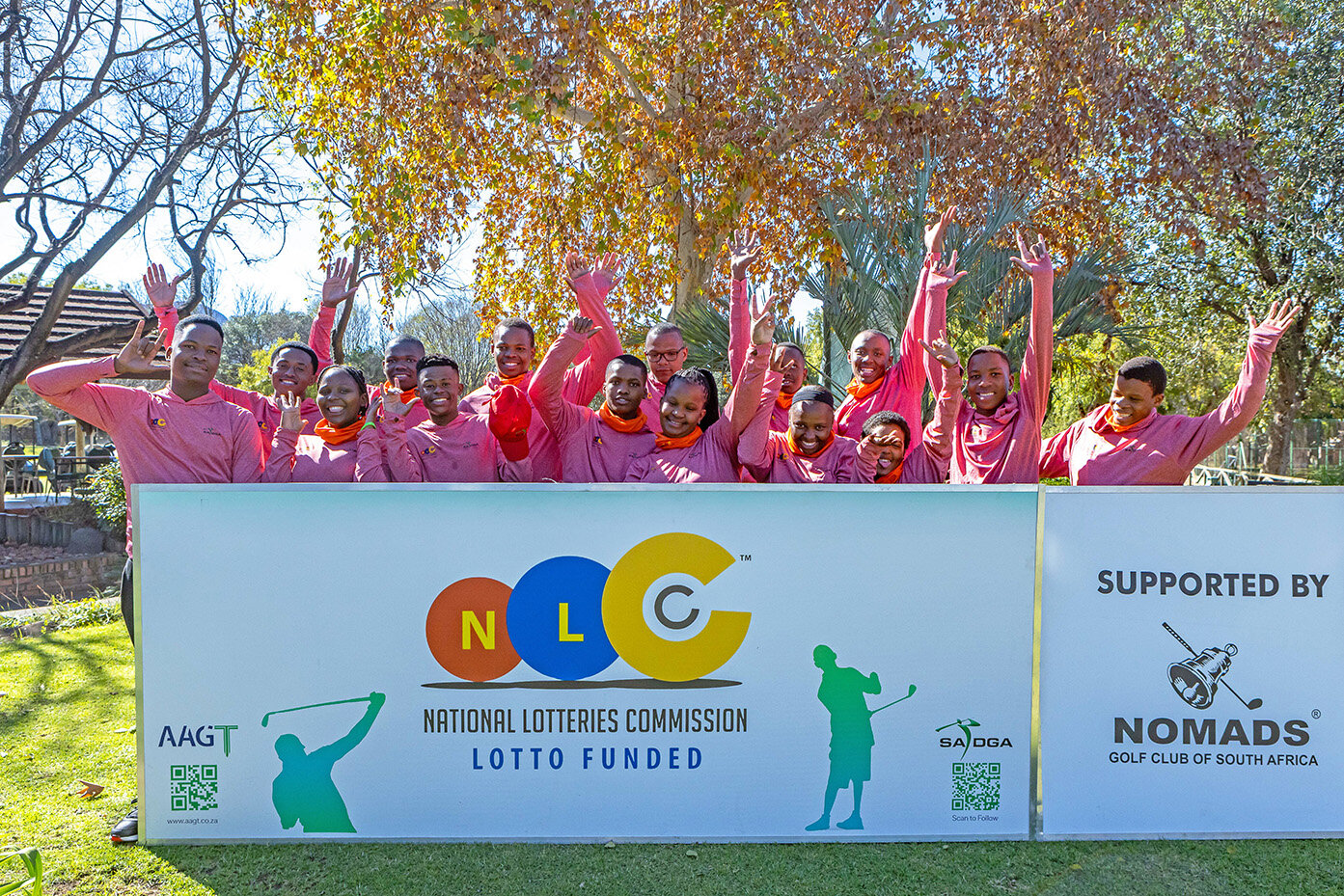
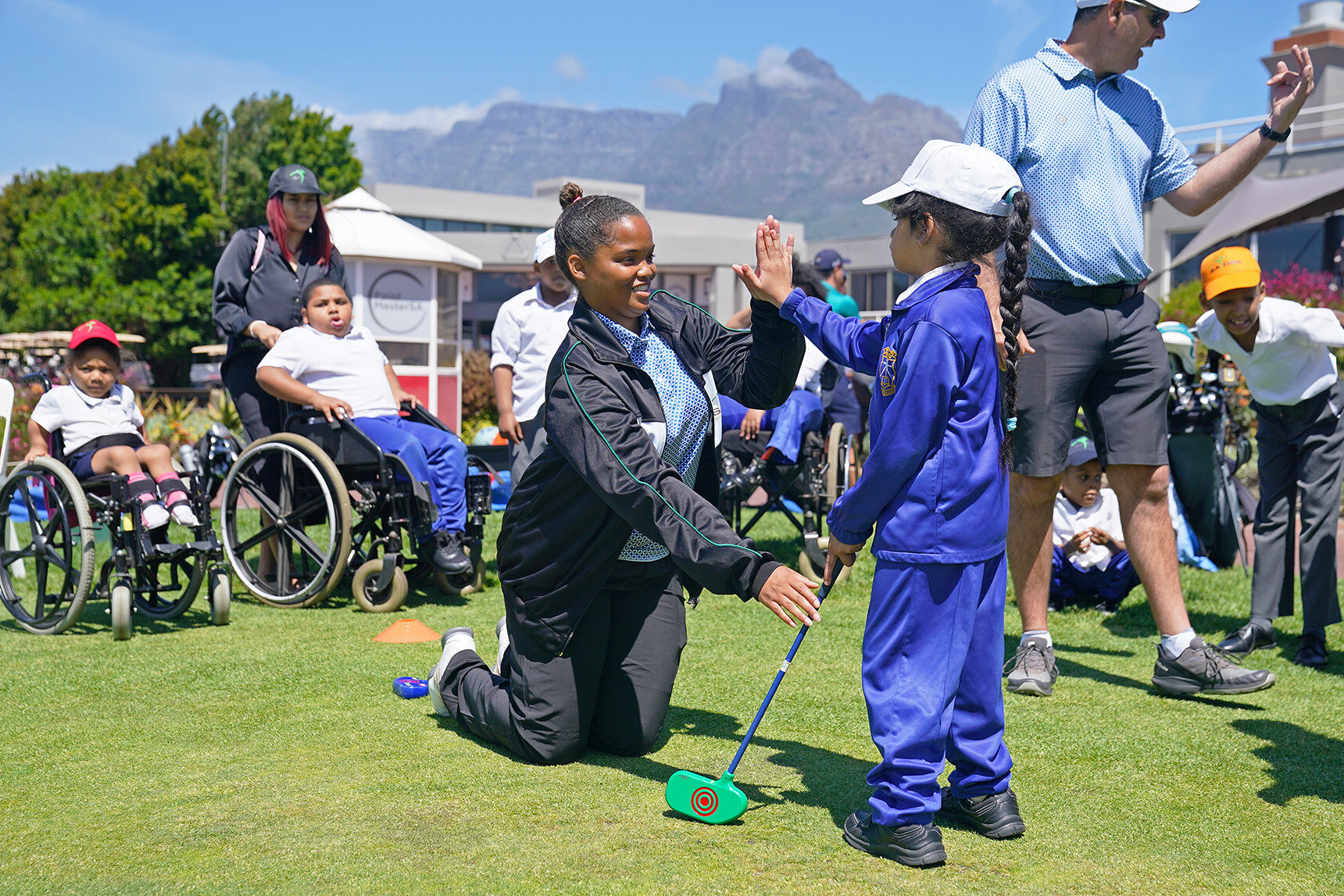
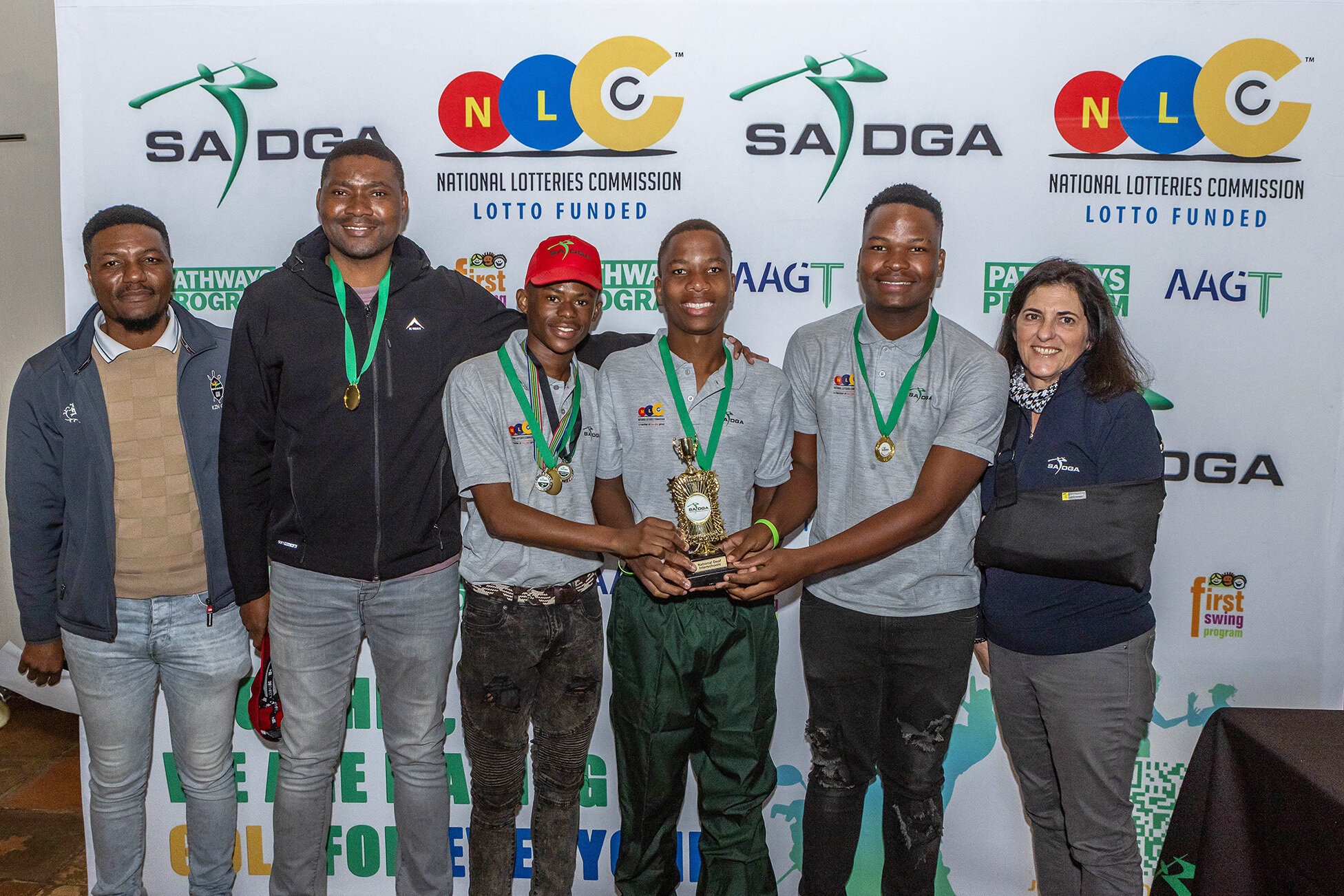
Lily Reich with prize-winners at the Deaf Interschools tournament
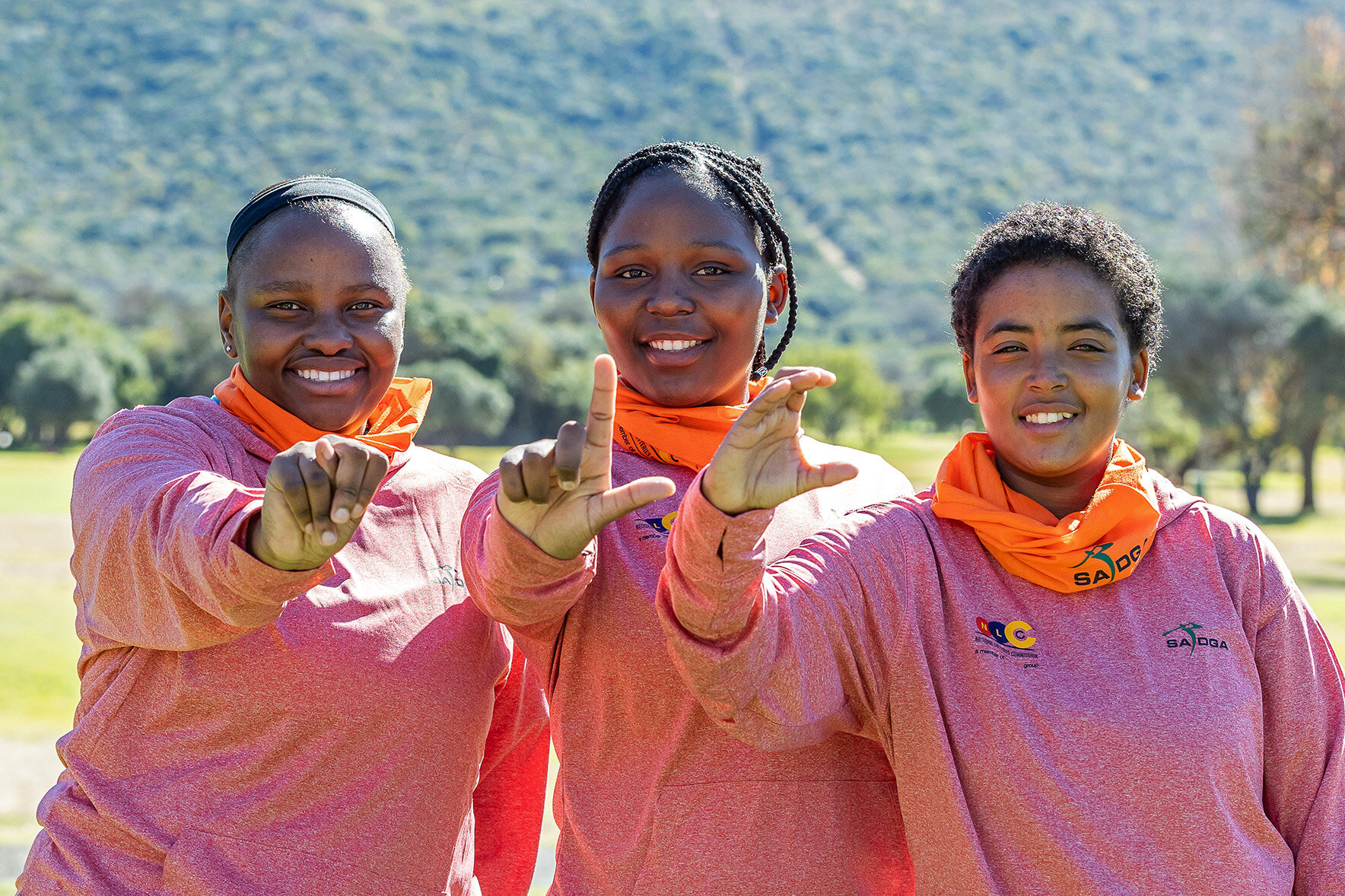
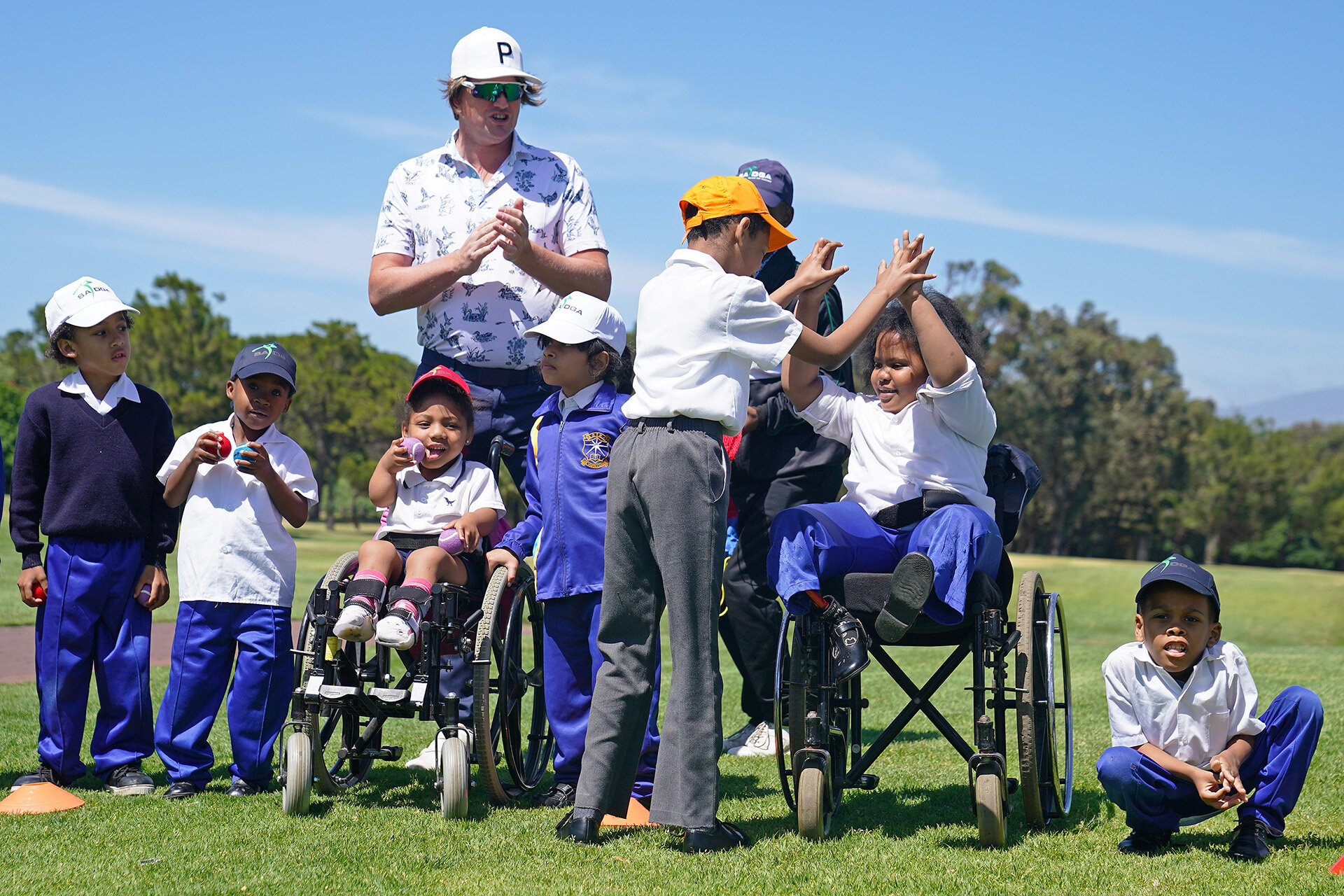
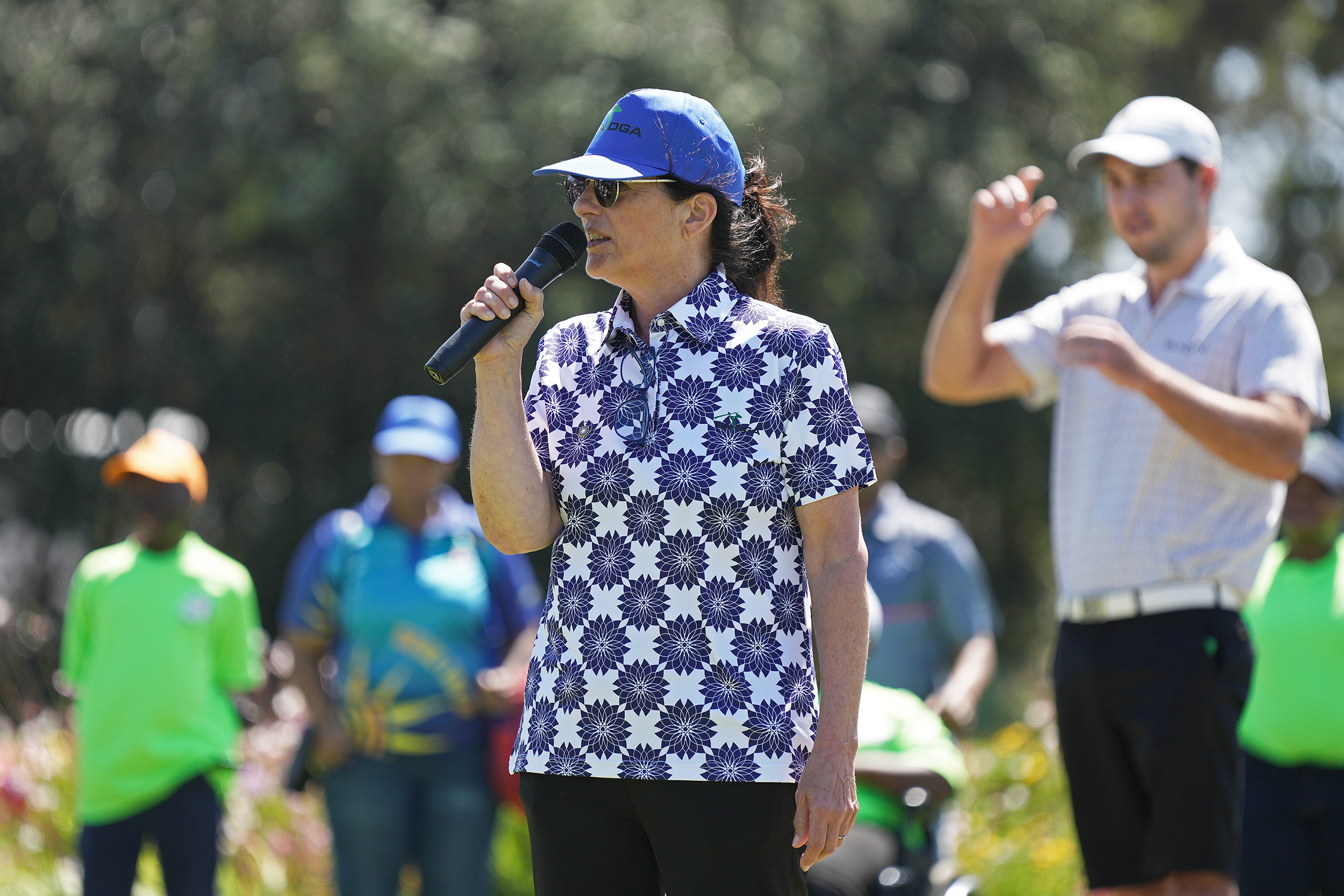
Lily Reich
SADGA’s impact is broader than sport. It builds community, fosters empathy and nurtures a sense of belonging. Players like Watts, though disabled, often compete in mainstream Sunshine Tour events and club championships, abiding by strict competitive standards. This visibility is groundbreaking.
Recent achievements highlight the association’s growing strength. In 2024, SADGA launched the All Abilities Golf Tour (AAGT), a national circuit featuring 10 tournaments on premier courses with World Ranking points. Television coverage brings unprecedented exposure to disabled golf, captivating millions and stepping up the profile of the sport.
For Reich, the smiles she sees on faces, from first-time players to elite competitors, are priceless. They reflect a deep joy and community spirit that money cannot buy. ‘They never complain about being sore or tired, and that is so inspiring,’ she says.
Yet beneath this joy lies the pressure of finance. ‘People are working for me for free, and I feel terrible. We’re only in 36 of the 80 schools for disabled children. We need money to run the engine.’
Despite these hurdles, Reich’s passion, determination and tireless energy keep the wheels turning. Her story is one of hope and possibility, a testimony to what can be achieved when one person dares to drive change, almost entirely on her own, with limited resources but a boundless heart.
